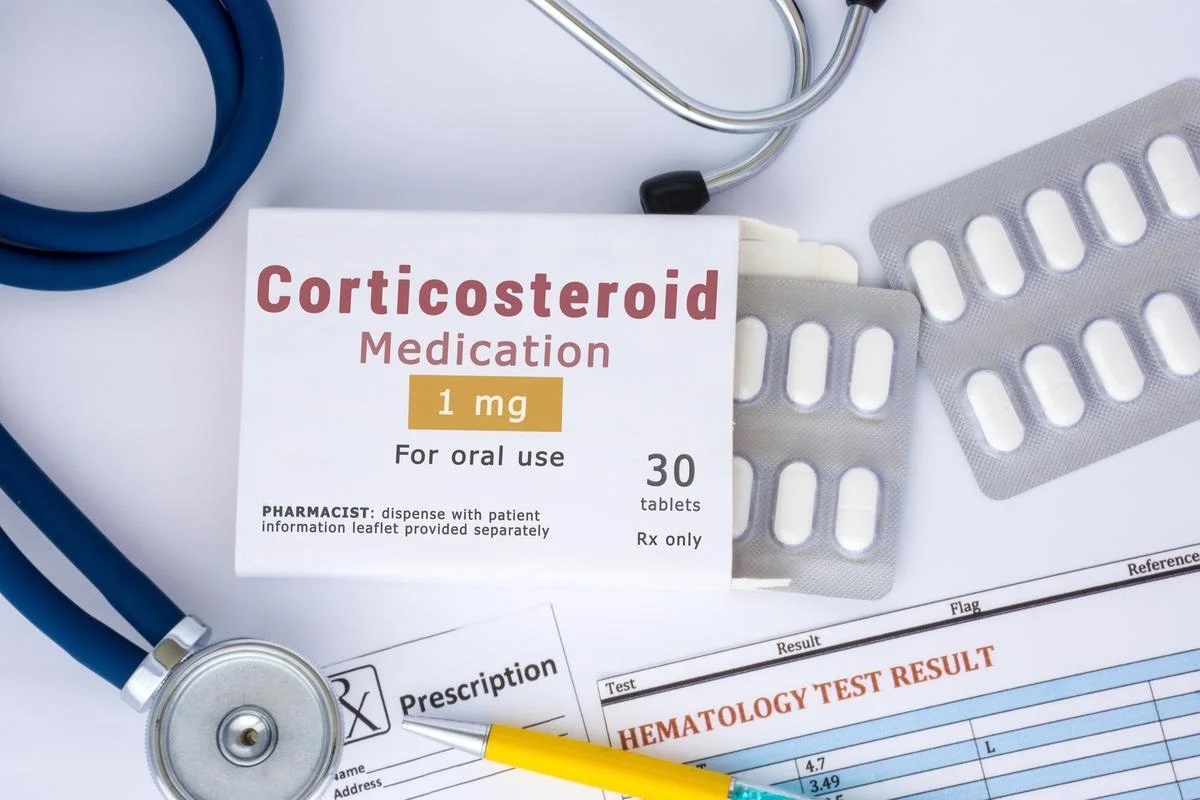
Corticosteroids are a class of medications that play a crucial role in managing a wide range of medical conditions. These powerful anti-inflammatory drugs mimic the effects of cortisol, a hormone naturally produced by the adrenal glands. From alleviating inflammation and controlling allergic reactions to regulating metabolism and influencing the immune system, corticosteroids have diverse therapeutic applications. However, their usage requires careful consideration due to potential side effects and the need for proper medical supervision.
In this article, we'll delve into seven essential facts about corticosteroids, shedding light on their mechanisms of action, medical indications, potential risks, and more. Whether you're a healthcare professional seeking to deepen your understanding or an individual exploring treatment options, this comprehensive guide aims to provide valuable insights into the world of corticosteroids. So, let's embark on a journey to unravel the mysteries and realities surrounding these multifaceted medications.
Key Takeaways:
- Corticosteroids are hormones that help the body fight inflammation and stress, but they can also have side effects like weight gain and mood changes. They’re different from anabolic steroids, which are used for muscle growth and performance enhancement.
- When using corticosteroids for medical purposes, it’s important to monitor their effects and potential side effects closely. They come in different forms like pills and creams and are used to treat conditions like asthma and arthritis.
Corticosteroids are Hormones
Corticosteroids are a class of hormones produced by the adrenal glands, which are located on top of each kidney. These hormones play a crucial role in regulating a wide range of essential bodily functions, including metabolism, immune response, and the balance of salt and water.
Corticosteroids Have Anti-Inflammatory Properties
One of the key functions of corticosteroids is their potent anti-inflammatory effect. They work by suppressing the immune system and reducing inflammation in the body. This makes them valuable in treating conditions such as asthma, arthritis, and allergic reactions.
Corticosteroids Are Used in Medicine
Corticosteroids are widely used in medicine to treat various conditions, including autoimmune diseases, skin disorders, and respiratory issues. They are available in different forms, including oral tablets, topical creams, and inhaled preparations, allowing for versatile treatment options.
Corticosteroids Can Have Side Effects
While corticosteroids are effective in managing many health conditions, they can also lead to side effects. These may include weight gain, high blood pressure, mood changes, and increased susceptibility to infections. It's important for healthcare providers to carefully weigh the benefits and risks when prescribing corticosteroids.
Corticosteroids Play a Role in Stress Response
During times of stress, the body releases corticosteroids to help cope with the physical and emotional demands. This natural response assists in regulating blood pressure, metabolism, and the immune system, enabling the body to adapt to challenging situations.
Corticosteroids Are Not the Same as Anabolic Steroids
It's essential to differentiate corticosteroids from anabolic steroids, which are synthetic variations of the male sex hormone testosterone. While anabolic steroids are associated with muscle growth and performance enhancement, corticosteroids serve primarily as anti-inflammatory and immunosuppressive agents.
Corticosteroids Require Proper Monitoring
When using corticosteroids for medical purposes, close monitoring is necessary to assess their effectiveness and minimize potential side effects. Healthcare providers carefully evaluate the dosage, duration of treatment, and individual response to ensure optimal outcomes.
Corticosteroids, a class of hormones produced by the adrenal glands, are essential for regulating various bodily functions. These hormones possess potent anti-inflammatory properties, making them valuable in treating conditions such as asthma, arthritis, and allergic reactions. Widely utilized in medicine, corticosteroids are available in different forms, including oral tablets, topical creams, and inhaled preparations. While effective, they can lead to side effects such as weight gain, high blood pressure, and mood changes. Corticosteroids also play a crucial role in the body's stress response, aiding in coping with physical and emotional demands. It's important to note that corticosteroids differ from anabolic steroids, which are associated with muscle growth and performance enhancement. Proper monitoring is essential when using corticosteroids for medical purposes to ensure optimal outcomes and minimize potential side effects.
Conclusion
In conclusion, understanding the key facts about corticosteroids is crucial for anyone seeking to comprehend their role in medicine. From their anti-inflammatory properties to their diverse applications in treating various conditions, corticosteroids play a significant role in modern healthcare. It's important to approach their usage with caution and under the guidance of a healthcare professional to maximize their benefits while minimizing potential risks. By staying informed about corticosteroids, individuals can make well-informed decisions about their healthcare and contribute to their overall well-being.
FAQs
What are the common side effects of corticosteroids?Corticosteroids can lead to side effects such as weight gain, mood changes, increased risk of infections, and osteoporosis, especially with long-term use. It's essential to discuss potential side effects with a healthcare provider before starting corticosteroid treatment.
Can corticosteroids interact with other medications?Yes, corticosteroids can interact with various medications, including blood thinners, diabetes medications, and certain vaccines. It's crucial to inform healthcare providers about all medications and supplements being taken to avoid potential interactions and adverse effects.
Corticosteroids offer powerful anti-inflammatory benefits, but proper usage is key. Learning more about topical steroids can help you make informed decisions regarding your health. Consult with your healthcare provider to determine if corticosteroid treatment is right for you and to ensure safe, effective use under medical supervision.
Was this page helpful?
Our commitment to delivering trustworthy and engaging content is at the heart of what we do. Each fact on our site is contributed by real users like you, bringing a wealth of diverse insights and information. To ensure the highest standards of accuracy and reliability, our dedicated editors meticulously review each submission. This process guarantees that the facts we share are not only fascinating but also credible. Trust in our commitment to quality and authenticity as you explore and learn with us.
